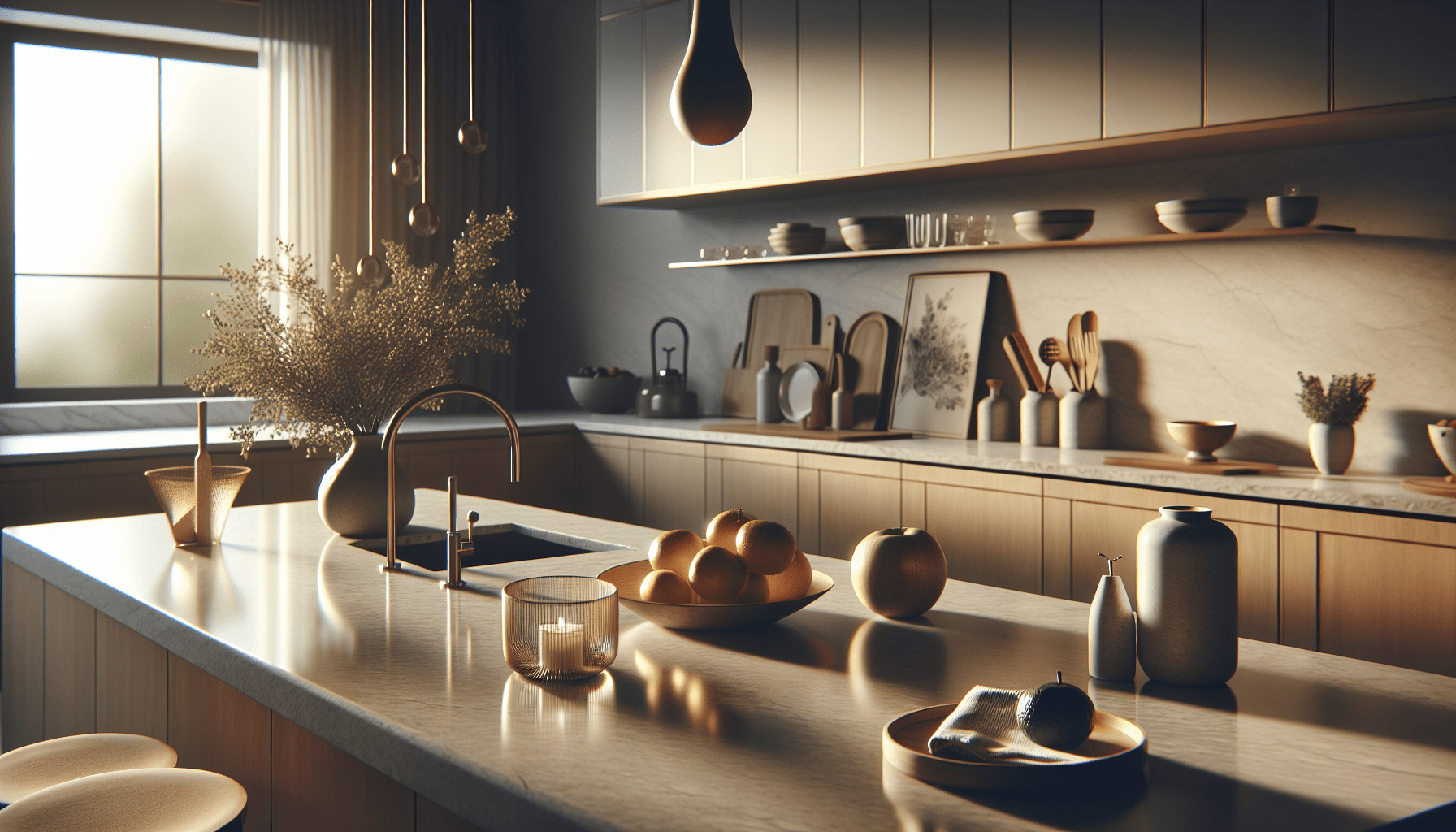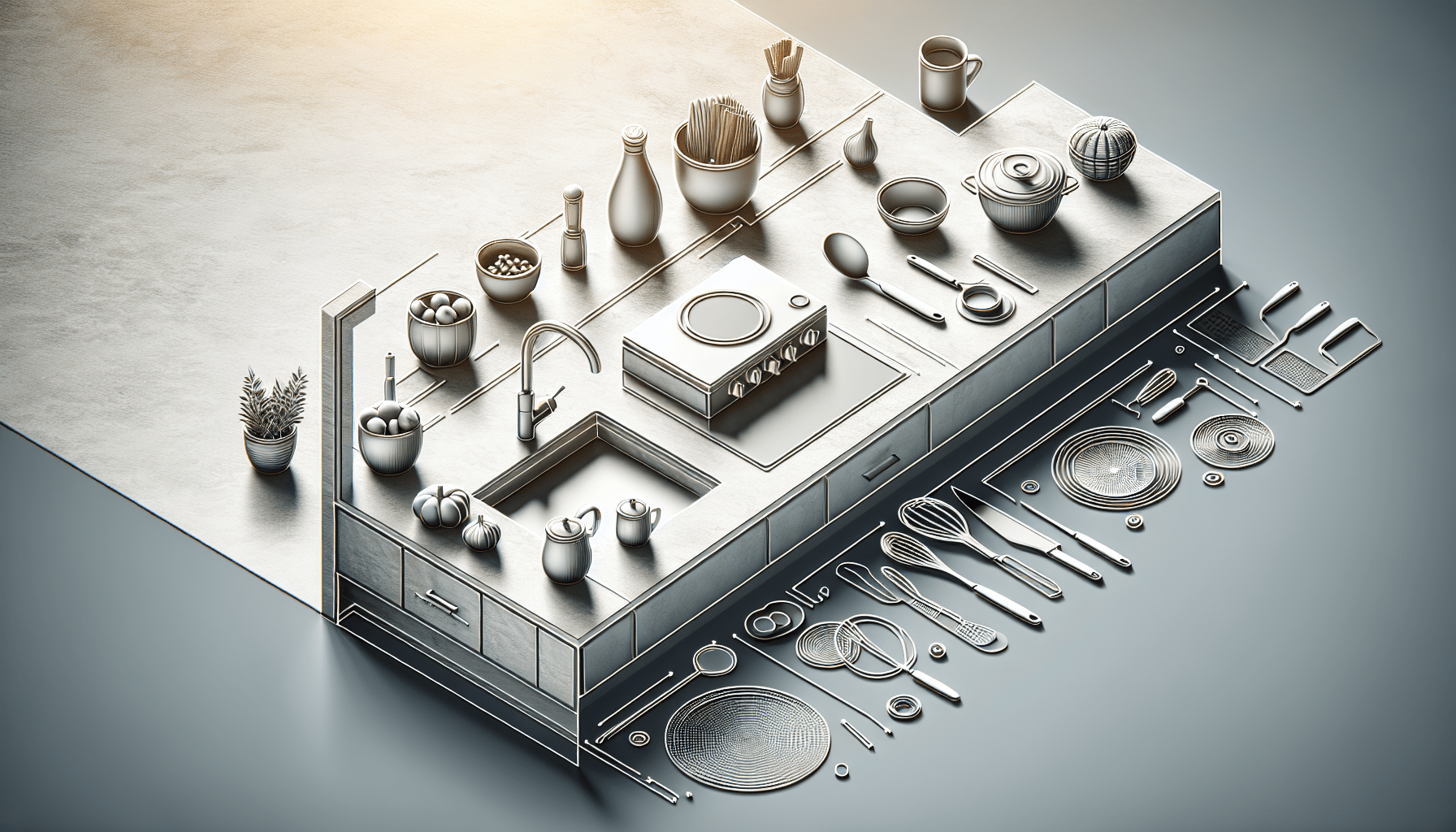Can You Use Countertops Right After Installation?
Have you ever wondered if you can start using your countertops immediately after installation? The answer may surprise you. While it’s tempting to jump right in and start utilizing your new workspace, it’s important to give your countertops some time to settle and fully cure. In this article, we will explore the factors that affect the usability of countertops after installation and provide you with the guidance you need to ensure the longevity of your investment. So, let’s dive in and discover when it’s safe to start enjoying your brand new countertops.
Factors to Consider
When it comes to using your new countertops right after installation, you need to consider a few important factors. These factors include the type of countertop material, adhesive curing time, sealing and finishing, as well as any cautions and precautions that should be taken. By understanding these factors and following the recommendations, you can ensure the longevity and durability of your countertops.
Type of Countertop Material
The type of countertop material you have installed plays a significant role in determining when you can begin using it. Here are some common types of countertop materials and their characteristics:
Natural Stone Countertops
Natural stone countertops, such as granite, marble, and soapstone, are elegant and timeless options. However, these materials can be porous and require sealing to protect against stains. The recommended waiting period before using natural stone countertops varies depending on the type of stone and sealer used, so it’s best to consult with your installer or manufacturer for specific guidelines.
Engineered Stone Countertops
Engineered stone countertops, like quartz, are increasingly popular due to their durability and low maintenance. Unlike natural stone, engineered stone is non-porous and generally does not require sealing. However, it is still important to follow the manufacturer’s recommendations for curing time before subjecting the countertops to regular use.
Solid Surface Countertops
Solid surface countertops, such as Corian, are a versatile option that can mimic the appearance of natural stone. These countertops are non-porous and easy to clean, but they can be susceptible to scratches and heat damage. Typically, solid surface countertops can be used immediately after installation, but it’s important to take preventative measures to avoid any potential damage.
Wooden Countertops
Wooden countertops offer a warm and inviting aesthetic, but they require regular maintenance to keep them looking their best. Before using wooden countertops, it’s important to ensure that they have been properly sealed and finished. It’s also crucial to avoid placing hot pans directly on the surface to prevent heat damage.
Laminate Countertops
Laminate countertops are a popular, budget-friendly option that comes in a wide variety of colors and designs. These countertops are durable and easy to clean, but they are susceptible to scratches and heat damage. In most cases, laminate countertops can be used immediately after installation, but it’s important to follow the manufacturer’s recommendations to ensure their longevity.

Adhesive Curing Time
During the installation process, adhesive is used to secure the countertop material to the base. Understanding adhesive curing time is essential as it can impact the overall strength and stability of the countertops. Here are some important considerations regarding adhesive curing:
Understanding Adhesive Curing
Adhesive curing refers to the process of the adhesive fully drying and hardening. This is vital for the countertops to achieve their maximum strength and stability. Different adhesives have varying curing times, and it’s crucial to follow the manufacturer’s recommendations for the specific adhesive used during countertop installation.
Recommended Curing Time
The recommended curing time can vary depending on the type of adhesive used, the countertop material, and the application method. On average, it is recommended to wait at least 24 to 48 hours before subjecting the countertops to any regular use. However, it’s important to note that this timeframe can differ, and it’s best to consult with your installer or manufacturer for precise guidelines.
Wait for Full Curing
While it may be tempting to start using your countertops as soon as the adhesive appears to be dry, it’s essential to wait for full curing. Rushing to use the countertops too soon can compromise their integrity and potentially lead to damage. It’s always better to err on the side of caution and wait for the adhesive to fully cure before putting any weight or pressure on the countertops.
Sealing and Finishing
Sealing and finishing your countertops are important steps to protect them from stains, scratches, and other forms of damage. Here’s what you need to know about sealing and finishing your countertops:
Importance of Sealing
Sealing your countertops is crucial, especially if you have natural stone or porous materials. Sealing creates a protective barrier against stains and moisture penetration, ensuring that your countertops remain in pristine condition for years to come. However, not all countertop materials require sealing, so it’s essential to consult with your installer or manufacturer to determine if sealing is necessary.
Waiting Period for Sealing
After installation, it’s important to wait for the countertops to fully cure before applying any sealant. Rushing the sealing process can prevent the adhesive from fully setting and could compromise the effectiveness of the sealant. Consult with your installer or manufacturer for the recommended waiting period before sealing to ensure optimal results.
Finishing Touches
In addition to sealing, applying a finishing coat can enhance the appearance and durability of your countertops. Depending on the material, a finishing coat may be recommended to provide an extra layer of protection. Consult with your installer or manufacturer for specific recommendations on finishing touches for your countertops.

Immediate Use for Countertops
Once the countertops have been installed and properly cured, you may be eager to put them to use. However, it’s important to exercise caution and follow some guidelines to ensure the longevity and durability of your countertops.
Protective Coverings
To safeguard your countertops from scratches and other forms of damage, it’s advisable to use protective coverings, such as cutting boards and trivets. These will help prevent direct contact between the countertop surface and potentially harmful objects or excessive heat.
Light Use
While you may be excited to fully utilize your countertops, it’s best to start with light use initially. Gradually increase the usage over time to allow the countertops to adjust and settle into their new environment. This approach will minimize the risk of any unforeseen issues or damage.
Avoid Heavy Weight or Impact
To prevent cracking, chipping, or any structural damage, avoid placing heavy objects directly on the countertop surface. Be mindful of any impacts, such as accidentally dropping heavy items, as these can cause irreversible damage.
Follow Manufacturer’s Recommendations
Every countertop material has specific care and maintenance guidelines provided by the manufacturer. It’s crucial to familiarize yourself with these instructions and follow them diligently. Adhering to the manufacturer’s recommendations will help prolong the life of your countertops and maintain their pristine condition.
Cautions and Precautions
To ensure the longevity and durability of your countertops, it’s important to be mindful of certain cautions and precautions. Here are some key points to consider:
Avoid Heat Exposure
While some materials, such as quartz, are more heat-resistant, it’s generally best to avoid placing hot pans or pots directly on the countertop surface. Heat can cause discoloration, cracking, or other forms of damage. Always use trivets or hot pads to protect the countertop from excessive heat.
Keep Surface Clean
Regularly cleaning the countertops is essential for maintaining their appearance and cleanliness. However, it’s important to use gentle, non-abrasive cleaning agents to avoid scratching or damaging the surface. Consult your installer or manufacturer for recommended cleaning products and methods.
Mindful of Chemical Exposure
Certain chemicals and substances can stain or damage countertops, especially those made from natural stone. Avoid exposing your countertops to acidic or abrasive cleaners, as well as substances like red wine, citrus juice, or vinegar. Wipe up spills promptly to prevent any potential staining or etching.
Preventing Damage
To prevent damage, it’s best to avoid placing sharp objects directly on the countertop surface. Use cutting boards and other protective surfaces when preparing food or handling sharp utensils. Additionally, be mindful of any heavy objects or impacts that could potentially cause damage.
Professional Guidance
If you have any concerns or questions regarding the use of your countertops after installation, it’s always best to seek professional guidance. Here are some recommendations for obtaining professional advice:
Consult with Installer
Your countertop installer is the best resource for specific information about your countertops. They have the experience and expertise to provide guidance on when it’s safe to start using your new countertops and any specific care instructions.
Ask About Specific Countertop
Each type of countertop material has its own unique characteristics and care requirements. When consulting with your installer, be sure to ask about the specific countertop material you have chosen. This will ensure that you receive the most accurate and relevant information related to your specific countertops.
Follow Professional Advice
Once you have obtained professional advice, it’s important to follow it diligently. The recommendations provided by your installer are based on their expertise and knowledge, and following their advice will help ensure the proper care and maintenance of your countertops.
Frequently Asked Questions
Can I immediately use my granite countertops?
The recommended waiting period for using granite countertops can vary depending on the sealer used. Generally, it’s best to wait at least 24 to 48 hours before subjecting granite countertops to regular use. Consult with your installer or manufacturer for precise guidelines based on your specific granite countertops.
How long should I wait before using my quartz countertops?
Quartz countertops typically have a shorter curing time compared to natural stone countertops. While the waiting period can vary, it’s generally recommended to wait at least 24 hours before using quartz countertops. As always, it’s best to refer to the manufacturer’s recommendations for specific guidelines.
Will using the countertops too soon damage them?
Using the countertops before they have fully cured or without following the recommended guidelines can potentially lead to damage. It’s crucial to wait for the adhesive to fully cure and to adhere to the waiting periods for sealing and finishing. By following the proper procedures, you can ensure the longevity and durability of your countertops.
Conclusion
When it comes to using your countertops right after installation, careful consideration and adherence to recommendations are key. Factors such as the type of countertop material, adhesive curing time, sealing and finishing, as well as cautions and precautions, should all be taken into account. By following these guidelines and seeking professional advice when needed, you can enjoy your countertops for years to come, ensuring their longevity and durability. Remember, patience and proper care will go a long way in preserving the beauty and functionality of your countertops.




